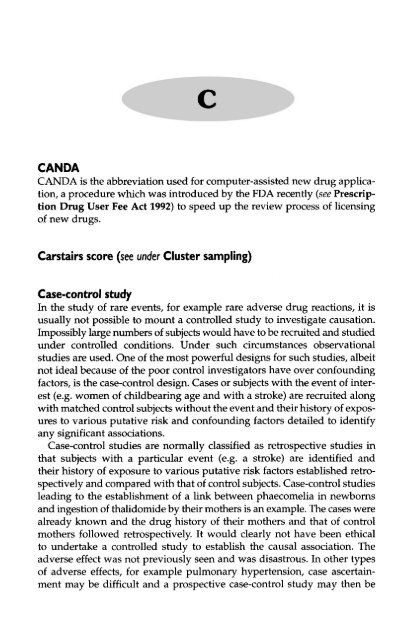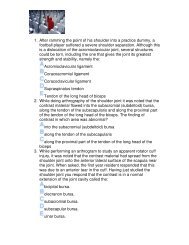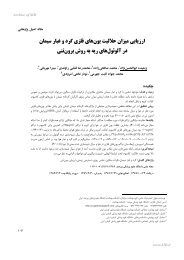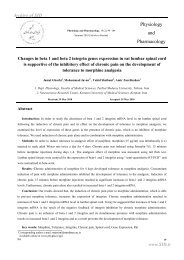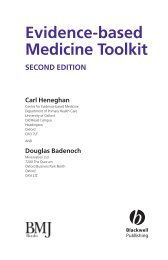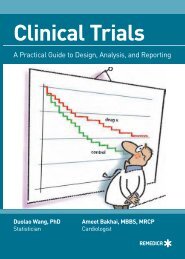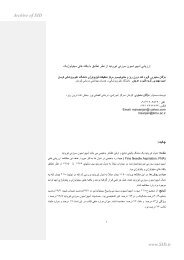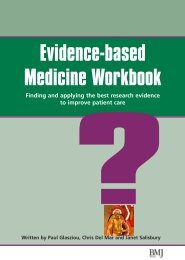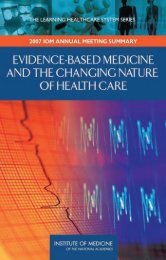Dictionary of Evidence-based Medicine.pdf
Dictionary of Evidence-based Medicine.pdf
Dictionary of Evidence-based Medicine.pdf
You also want an ePaper? Increase the reach of your titles
YUMPU automatically turns print PDFs into web optimized ePapers that Google loves.
C<br />
CANDA<br />
CANDA is the abbreviation used for computer-assisted new drug application,<br />
a procedure which was introduced by the FDA recently (see Prescription<br />
Drug User Fee Act 1992) to speed up the review process <strong>of</strong> licensing<br />
<strong>of</strong> new drugs.<br />
Carstairs score (see under Cluster sampling)<br />
Case-control study<br />
In the study <strong>of</strong> rare events, for example rare adverse drug reactions, it is<br />
usually not possible to mount a controlled study to investigate causation.<br />
Impossibly large numbers <strong>of</strong> subjects would have to be recruited and studied<br />
under controlled conditions. Under such circumstances observational<br />
studies are used. One <strong>of</strong> the most powerful designs for such studies, albeit<br />
not ideal because <strong>of</strong> the poor control investigators have over confounding<br />
factors, is the case-control design. Cases or subjects with the event <strong>of</strong> interest<br />
(e.g. women <strong>of</strong> childbearing age and with a stroke) are recruited along<br />
with matched control subjects without the event and their history <strong>of</strong> exposures<br />
to various putative risk and confounding factors detailed to identify<br />
any significant associations.<br />
Case-control studies are normally classified as retrospective studies in<br />
that subjects with a particular event (e.g. a stroke) are identified and<br />
their history <strong>of</strong> exposure to various putative risk factors established retrospectively<br />
and compared with that <strong>of</strong> control subjects. Case-control studies<br />
leading to the establishment <strong>of</strong> a link between phaecomelia in newborns<br />
and ingestion <strong>of</strong> thalidomide by their mothers is an example. The cases were<br />
already known and the drug history <strong>of</strong> their mothers and that <strong>of</strong> control<br />
mothers followed retrospectively. It would clearly not have been ethical<br />
to undertake a controlled study to establish the causal association. The<br />
adverse effect was not previously seen and was disastrous. In other types<br />
<strong>of</strong> adverse effects, for example pulmonary hypertension, case ascertainment<br />
may be difficult and a prospective case-control study may then be


